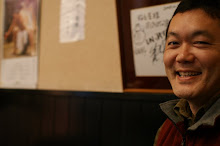The highly controversial “state funeral” of former Japanese Prime Minister Shinzo Abe ended up being a national disgrace, with no leader from fellow G7 countries or Japan’s major allies attending it. Its stark contrast to the state funeral of Britain’s Queen Elizabeth II was a clear revelation of how the country that once used to be Asia’s superpower quickly lost its international status, if not how much or little the person who passed was respected by the people.
Leaders of the world's democracies had a good reason not to attend Abe’s funeral. Polls taken by major Japanese media showed more people opposed than supported it. Abe’s association with a notorious religious cult that brainwashed and fraudulently taken money from innocent Japanese people, which came to light only after his death, changed many people’s view towards him. Prime Minister Fumio Kishida’s undemocratic way of deciding to hold a state funeral without seeking consent from the parliament also attracted criticism. Such tactics were first used by Abe himself.
Those who are not familiar with Japanese politics may wonder why many Japanese do not think the country’s longest-serving prime minister does not deserve a state funeral. Polls show that he is remembered most by the various scandals he and his wife Akie Abe were involved in, including selling government-owned land to his supporter at a fraction of the market value, and misusing government subsidies to help his friend start a vet school on Shikoku Island. His friend Noriyuki Yamaguchi, who was fined by the court for raping female journalist Shiori Ito was never arrested or sent to jail.
Abe had no hesitation to have bureaucrats falsify public records or physically paint government documents in black to cover up his scandal, and promoted those who led the effort, including former financial bureau chief Nobuhisa Sagawa, who drove one of his subordinates Toshio Akagi to commit a suicide in a crisis of conscience. In a continued effort to cover up the scandal, Abe’s right-hand man and successor Yoshihide Suga, who allegedly ordered the chief of Japanese police not to arrest Yamaguchi, paid off Akagi’s wife to forcefully end the lawsuit she filed to unveil the truth behind her husband’s death. Abe told the parliament that he will resign not only as a prime minister but as a member of the parliament if he or his wife is found to have been involved in the scandal, but never lived up to his words.
Then why in the world did the Japanese people let a person who undermined Japan’s democracy and independence of the judicial branch continue to stay in power? Polls taken while he was in power show that those who supported him did it for a passive reason, i.e. his administration looked better than other options – This is a reflection of people’s disappointment towards the former Democratic Party who lost power in just three years. People who did not support Abe had a stronger reason, i.e. they did not find him to be trustworthy. However strong the reason for not supporting him may be, it is the number that counts, and more people supported him even passively than those who disapproved him for his seemingly dodgy character.
The invitation extended to the head of Myanmar’s military that ousted the democratically-elected leader in a coup indicates what Abe's government was all about. He told Vladimir Putin that they are looking at the same future, made no issue about Russia's unilateral annexation of Crimea and even invited him to a resort in his constituency to ask him to return the Japanese-claimed islands occupied by the Russians - not only did he get nothing but he was kept waiting at the airport for two and a half hours. The mass execution of members of the former Aum Shinrikyo cult and the tragic death of a Sri Lankan woman who was detained by Japanese customs authorities both happened during his time, with Yoko Kamikawa as Justice Minister.
Without a doubt, it was a smart move by the current and former leaders of the world’s democracies not to attend Abe's state funeral. Canadian Prime Minister Justin Trudeau barely canceled his trip due to a hurricane that hit his country. He would have attracted so much attention had he been the only G7 leader to attend a state funeral that was not even supported by the country’s own people.
